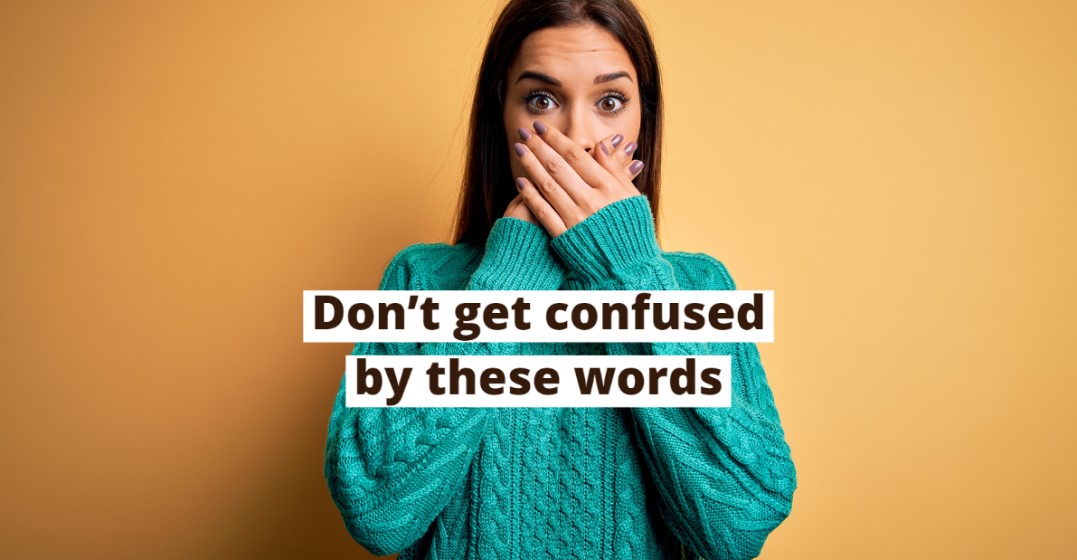Updated on January 8, 2024

These words are not what you think!

Learning languages gives us plenty of opportunities to shine. We make new connections, make new friends, experience the world differently and get to have a more authentic experience when we travel. But it’s also true that some words change from place to place, even though they look similar...and can embarrass us unexpectedly!
Let’s look at some false friends across languages that could make us blush in a heartbeat!
If you love learning languages, you’re probably familiar with this iconic mistake. You might have wanted to say you’re embarrassed in Spanish and went with “Estoy embarazada!”. The problem? Embarazada actually means “pregnant” in Spanish!
If a Portuguese speaker ever tells you they’re suffering with constipação, don’t be scared: they’re not sharing toilet habits with you! Rather, constipação means the “common cold” in Portuguese. Give them tissues, a warm tea and plenty of rest!
Have you ever looked at a Turkish sentence and realized it started with “Ben”…only to wonder who this man is? Who’s this Ben everyone keeps talking about? Well, ben is the word for “I” in Turkish. This means that if your name is indeed Ben, you’d have to say “Ben Ben” to say “I am Ben”.
As a potential German speaker, you love the sound of the expression “Prost!”. It takes you back to those summer afternoons sitting at a beer garden with your closest friends, sharing fun stories. But if a Romanian is present, they might have more to say about it: prost means “stupid”, “simple-minded” and “low-quality” in Romanian.
Another classic in the realm of English-German misunderstandings is the word Gift, which is German for “poison”. A dangerous false friend, indeed, especially if you promise somebody you’re going to give them a “gift” to die for!
A French speaker sneezes in front of you. You’d love to say “Bless you!”, but have no idea how that translates to French…so you just go with the obvious “Blessez-vous!”. Unfortunately, you’ve just asked the unlucky sneezer to hurt themselves, as the verbs “to hurt” or “to injure” translate to blesser in French.
There are plenty of Swedish words that can be misleading to English speakers. Spending time in Sweden, you might be surprised to hear the word bra thrown around all the time. You ask someone how they’re doing and they reply: “Bra!”. What’s with this obsession with underwear?! Don’t worry. Bra is Swedish for “good”.
Who would’ve guessed that a word that sounds so similar to “empathy” actually means “hostility” in Greek? That’s right. When using this word, you’re actually referring to open unfriendliness, or even hatred, towards someone.
Love is in the air…or is it? In Indonesia, you may want to think twice. Air (pronounced “ah-eer”) is Indonesian for “water”. This could be particularly important if you find yourself in a health emergency as a traveller and need something quick to drink. Good to know!
Yes, this word sounds extremely similar to “about” in English. Is the meaning similar, though? Absolutely not! The Japanese language uses abauto to refer to someone who is lazy or not punctual.
What other examples can you share with us? Have you ever had an embarrassing moment involving false friends? If you’ve ever had to deal with an awkward moment due to these tricky words, know it’s all a part of learning a new language. It’s all about making mistakes and moving on…only stronger!